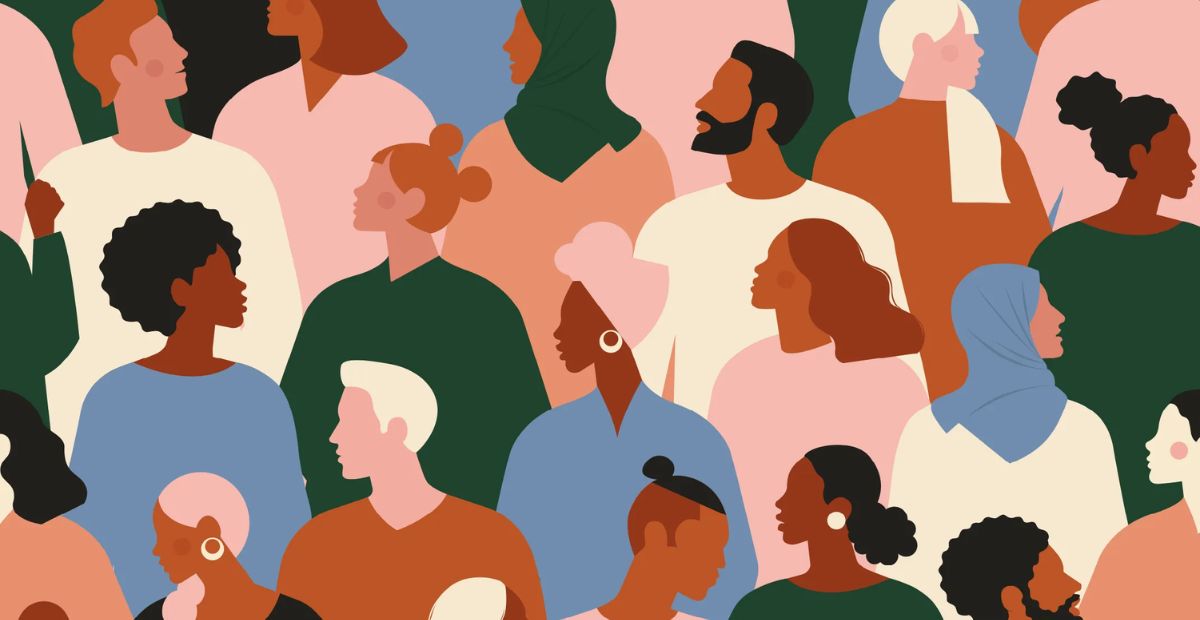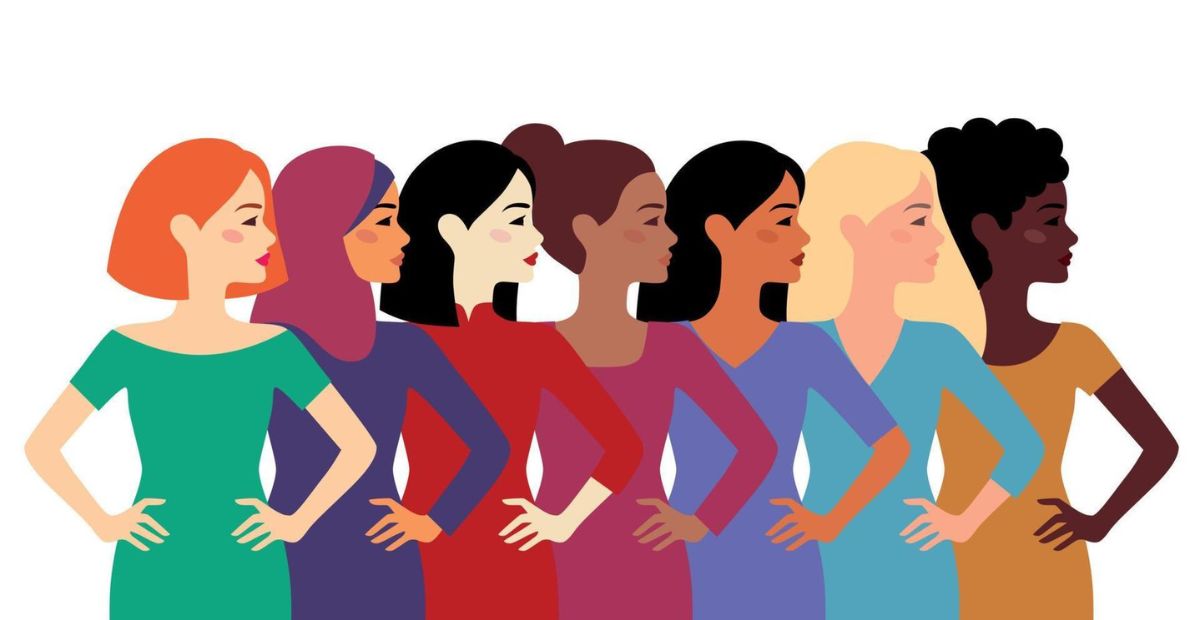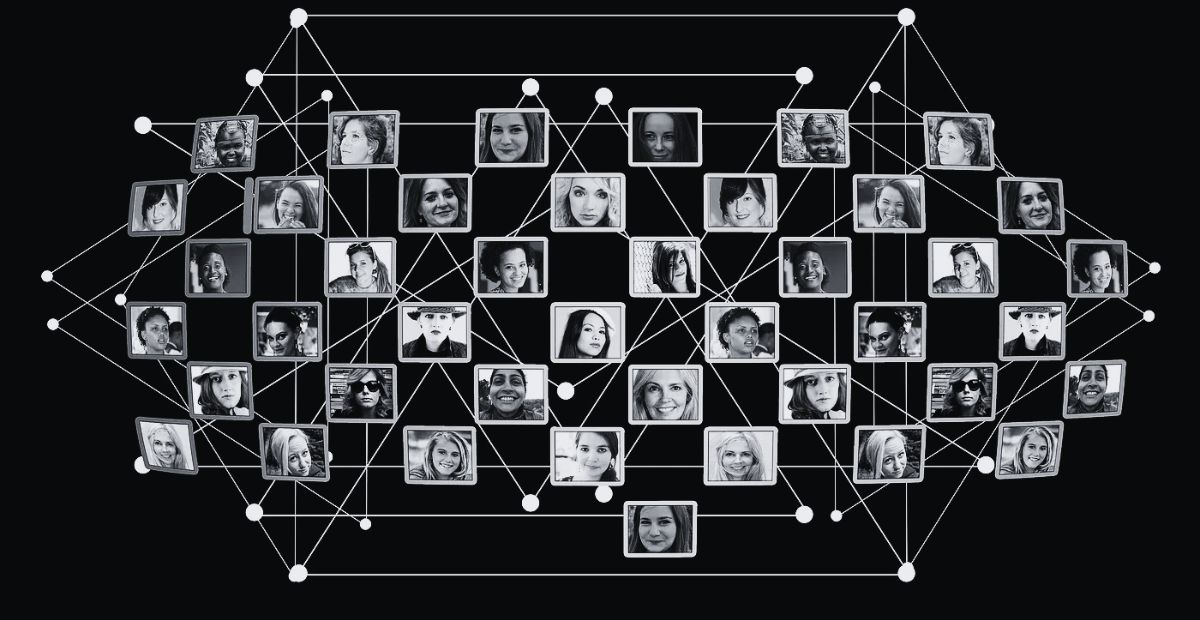In today’s diverse and interconnected world, understanding and respecting the various identities that shape our society is crucial. Identitarian deference, though it might sound complicated, is a key concept in fostering inclusivity and acceptance among different groups.
In this blog post, we will explore “What Does Identitarian Deference Require” entail, why it’s important to recognize the intersectionality of identity, and how to address those power imbalances that hinder progress toward a more just society.
Table of Contents
Key Takeaways
- Identitarian deference involves respecting and valuing the unique social, cultural, and ethnic identities of individuals.
- Understanding the intersectionality of identity is crucial to implementing identitarian deference effectively.
- Acknowledging social status, cultural expectations and norms, historical context, and power dynamics are factors that influence identitarian deference implementation.
- Implementing identitarian deference promotes respect, inclusivity, and community building while empowering marginalized voices.
Understanding Identitarian Deference

Identitarian deference involves recognizing and respecting the intersectionality of individuals’ identities, understanding their unique experiences and perspectives, and acknowledging the historical power dynamics that have shaped their present realities.
Definition And Explanation
Identitarian deference is a concept that emphasizes the importance of respecting and valuing other individuals’ cultural, social, and ethnic identities.
By prioritizing understanding and acknowledging these diverse perspectives, this principle aims to foster inclusion, equity, and positive collaboration among various groups in society.
For example, by practicing identitarian deference towards an immigrant coworker who is navigating cultural differences in a new country, we can demonstrate empathy for their unique struggles while fostering mutual respect within our workplace.
This approach enables marginalized communities to express themselves openly while allowing others to learn from these diverse experiences.
Importance Of Identitarian Deference
Identitarian deference is crucial for promoting respect, understanding, and inclusion in our society. It recognizes the intersectionality of identity, which means that individuals have multiple identities that intersect to form their unique experiences.
Identitarian deference acknowledges the influence of cultural expectations, social status, and power dynamics on these identities.
By implementing identitarian deference, marginalized communities are empowered to share their voices without fear of oppression or discrimination.
This leads to greater diversity and inclusivity in political decision-making processes, creating more just outcomes for all members of society.
However, implementing identitarian deference requires listening actively with an open mind while acknowledging boundaries to avoid tokenism or performative allyship.
Recognizing The Intersectionality Of Identity
To truly understand and implement identitarian deference, it is crucial to recognize the intersectionality of identity.
People have multiple identities that shape their experiences and perspectives, such as cultural, social, group, personal, ethnic, and national identities.
For example, a person may identify as both a woman and a person of color and face discrimination based on both aspects of their identity simultaneously.
By understanding that no one simply has one singular identity but rather exists within multiple communities or groups with distinct characteristics such as race or gender identity – we can better appreciate how people live with overlapping systems of privilege and oppression.
Factors That Influence Identitarian Deference

Social status, cultural expectations and norms, and historical context and power dynamics all play a role in determining the level of identitarian deference shown within a given community or society.
Social Status And Identity
Social status is a significant factor that influences identitarian deference. Individuals from higher social classes tend to have more privileges and power, which can lead to a lack of understanding or sensitivity toward the experiences of those from different backgrounds.
Furthermore, identity plays a crucial role in determining how individuals perceive themselves and others. One’s cultural background, gender identity, sexual orientation, and other aspects of their personal identity shape their worldview and experiences.
Thus it is important to consider these factors when practicing identitarian deference since they affect how one interacts with others in society.
Cultural Expectations And Norms
Cultural expectations and norms play a significant role in shaping how individuals view themselves and others. These can include behaviors, beliefs, values, and traditions that are upheld by particular social groups or cultures.
Identitarian deference requires recognizing the impact of cultural expectations and norms on individual and collective identities. For example, certain cultures may prioritize collectivism over individualism, leading to a greater emphasis on group identity.
To implement identitarian deference effectively, it is crucial to acknowledge these differences while also avoiding stereotyping or making assumptions based on cultural backgrounds.
This means being willing to listen to diverse perspectives without judgment and respecting boundaries set by individuals based on their cultural backgrounds.
Historical Context And Power Dynamics
Understanding the historical context and power dynamics at play in society is essential when it comes to identifying and practicing identitarian deference.
Historical events, such as colonization and slavery, have led to the marginalization of certain groups based on their identity. Power dynamics also play a significant role in identitarian deference.
Those with more social status or privilege are often unaware of their inherent advantages, while those who lack certain privileges may feel overlooked or excluded.
For example, a white person acknowledging their racial privilege can be mindful of not dominating conversations about race but instead amplifying the perspectives of people of color.
Similarly, an able-bodied individual can recognize that accessibility barriers prevent disabled individuals from fully participating in society and advocating for change.
The Benefits Of Identitarian Deference

Implementing identitarian deference promotes respect and understanding, encourages diversity and inclusivity, fosters community and social cohesion, and empowers marginalized voices.
Promoting Respect And Understanding
Implementing identitarian deference promotes respect and understanding among different social, cultural, historical, and personal identities. It requires active listening and learning while being open-minded to diverse perspectives.
For example, instead of assuming that a certain group experiences the same challenges or needs as another, one can ask questions to understand their unique experiences and culture.
Identitarian deference also encourages acknowledging and respecting boundaries without trying to dominate or silence others’ voices.
This means recognizing that some groups may not want help from outsiders or may have different ways of approaching issues based on their history and context.
Encouraging Diversity And Inclusivity
Encouraging diversity and inclusivity is a crucial aspect of identitarian deference. Acknowledging and respecting the intersectionality of identities can lead to a more equitable and inclusive society.
For instance, implementing policies that promote diversity in hiring practices could help counteract systemic inequalities faced by marginalized communities.
Encouraging inclusivity also involves creating safe spaces where people can share their experiences without fear of judgment or backlash.
This can involve active listening, building relationships across diverse groups, and being open to learning about other cultures and perspectives.
Fostering Community And Social Cohesion
Fostering community and social cohesion is one of the core benefits of identitarian deference. By recognizing and respecting the various identities of individuals within a society, we can create a more cohesive and inclusive community.
For example, by acknowledging the cultural identities of members within a community, we can create events that celebrate different traditions or cuisines.
This not only allows different groups to showcase their cultures but also encourages others to learn about them. This kind of inclusivity helps in building cross-cultural bridges, overcoming prejudices, and promoting tolerance and respect for other cultural practices.
Empowering Marginalized Voices
Empowering marginalized voices is a critical component of identitarian deference. When we give voice to those who have traditionally been silenced or ignored, we create space for diversity and inclusivity in our communities.
One example of empowering marginalized voices is through the use of inclusive language. This means using words and phrases that acknowledge the humanity and dignity of all people, regardless of their identity.
Another way to empower marginalized voices is by actively seeking out diverse perspectives in decision-making processes. This means including individuals from underrepresented groups on boards or committees where important decisions are being made.
Implementing Identitarian Deference

To implement identitarian deference, it is important to listen and learn from marginalized voices, be open-minded, acknowledge boundaries, and take action to support underrepresented communities.
1. Listening And Learning
To implement identitarian deference, it’s crucial to listen and learn from the experiences of marginalized communities. Here are some actionable steps you can take:
- Seek out diverse perspectives: Read books, watch documentaries, and follow individuals from different backgrounds on social media. Seek out perspectives that challenge your own.
- Listen actively: When engaging in conversations with individuals from marginalized communities, listen attentively to their experiences without centering the conversation around yourself.
- Avoid invalidating experiences: Acknowledge the validity of someone’s experiences, even if they differ from your own. Avoid gaslighting or dismissing someone’s concerns.
- Learn about privilege and oppression: Educate yourself on the ways in which systems of privilege and oppression operate in society. Recognize the ways in which your own identities may afford you certain privileges or disadvantages.
- Be open to feedback: Accept feedback gracefully when it’s given to you by members of marginalized communities. Use this feedback to reflect on your own biases and beliefs.
By actively listening and learning, we can begin to understand the diverse experiences of those around us and work towards creating a more just society for all.
2. Being Open-minded
Identitarian deference requires being open-minded and receptive to different perspectives, experiences, and identities.
It means setting aside preconceived notions or biases and actively listening to marginalized communities without judgment or defensiveness.
For example, if someone expresses discomfort with a certain term or behavior that may be unintentionally offensive to their identity group, practicing identitarian deference would involve taking their concerns seriously instead of dismissing them as overly-sensitive.
Being open-minded in this context means recognizing the validity of lived experiences and acknowledging the power dynamics at play in society.
3. Acknowledging And Respecting Boundaries
To implement identitarian deference, it is important to acknowledge and respect boundaries. This means recognizing that individuals have different experiences based on their identities and backgrounds, and understanding that these experiences shape their perspectives.
Acknowledging and respecting boundaries also involves being aware of your own privilege and how it may impact your interactions with others.
For example, if you are a cisgender person discussing transgender issues with a trans individual, it is important to recognize that your perspective may be limited by your lack of lived experience.
When approaching discussions about identity-related topics, it is essential to approach the conversation in an open-minded manner while also acknowledging the limitations of our own knowledge and perspectives.
4. Taking Action To Support Marginalized Communities
To implement identitarian deference and promote equity and inclusion, taking action to support marginalized communities is essential. Here are some ways you can do that:
- Educate yourself: Take the time to learn about the experiences of marginalized communities through books, articles, documentaries, or other resources. Listen to their stories and perspectives without judgment.
- Amplify marginalized voices: Use your platform to raise awareness of issues affecting marginalized communities. Share their stories on social media or in your personal interactions.
- Support minority-owned businesses: Buy from local shops owned by people from marginalized communities or donate to organizations that support them.
- Attend protests and rallies: Show up for protests and rallies supporting issues affecting marginalized communities like Black Lives Matter or LGBTQ+ rights.
- Volunteer with community organizations: Reach out to community organizations serving marginalized groups and volunteer your time, skills, or resources.
- Challenge discriminatory behavior: Speak out against discriminatory behavior when you see it happening around you. Call out racist, sexist, or homophobic jokes or language.
- Advocate for policy changes: Contact your elected officials and advocate for policy changes that will benefit marginalized communities like affordable housing or healthcare access.
By taking these actions, we can work towards a more just society that respects all identities and creates equal opportunities for everyone.
Challenges And Criticisms Of Identitarian Deference

Resistance from privileged individuals can pose a challenge to implementing identitarian deference, as some may feel threatened by the idea of relinquishing their dominance and recognizing the perspectives of marginalized communities.
Fear Of Tokenism And Performative Allyship
Tokenism and performative allyship are commonly cited as criticisms of identitarian deference. Tokenism is when individuals are selected or recruited solely based on their identity to provide an appearance of diversity without actually promoting inclusivity.
These behaviors can be harmful because they fail to address the root causes of oppression and do not provide real solutions for marginalized communities.
To avoid tokenism and performative allyship, it’s important to actively listen to marginalized voices, acknowledge privileges, be willing to learn, and take concrete steps toward creating an inclusive environment that promotes equity for all identities.
Resistance From Privileged Individuals
One of the challenges in implementing identitarian deference is resistance from privileged individuals. Privilege refers to unearned advantages or benefits that certain groups enjoy based on their social status, such as race, gender, sexuality, or class.
People with privilege may resist giving up their power and privilege because it threatens their sense of self-worth or security.
For example, a white person may become defensive when asked to acknowledge their racial privilege because they believe they have worked hard and earned everything they have achieved.
Similarly, a wealthy person may resist acknowledging how their economic advantage has contributed to the marginalization of others.
Balancing Multiple Identities And Perspectives
In today’s diverse society, people often hold multiple identities and belong to various communities at once. These different identities can include cultural background, race, gender identity, sexual orientation, religion, and more.
However, when it comes to identitarian deference – the recognition of another person’s unique identity – balancing these multiple perspectives can be a challenge. One way to approach this challenge is through active listening and empathy.
By actively listening to others’ experiences and recognizing the intersectionality of their identities, we can better understand their motivations and needs. This involves stepping outside our own perspective and being open-minded toward different viewpoints.
Furthermore, arguing from a testimonial reasoning perspective means trusting individuals with lived experience on particular issues over experts who have no background knowledge in such an issue; thus providing an added layer of insight into specific identification dynamics.
Balancing multiple identities also requires self-awareness around one’s privilege in certain situations or within certain communities. Recognizing privilege can help individuals avoid talking over others or dismissing their experiences as irrelevant.
Moving Towards A More Just Society Through Identitarian Deference
By promoting equity and inclusion, recognizing and addressing power imbalances, and taking action to create change, implementing identitarian deference can lead us toward a more just society.
Promoting Equity And Inclusion
Implementing identitarian deference can play a significant role in promoting equity and inclusion within society. By acknowledging and respecting people’s multiple identities, we create an environment that fosters diversity.
For example, by listening to the experiences of Black Lives Matter activists, organizations have started acknowledging their lack of representation in positions of power and initiated reforms to address this issue.
Similarly, recognizing the intersectionality of LGBTQ+ identities has led many companies to expand healthcare benefits beyond basic coverage for same-sex partners.
With these kinds of actions taken consistently over time, societal injustices can begin to be remedied through varying means such as creating more equitable laws or equalizing opportunities for advancement in different domains like employment or education.
Recognizing And Addressing Power Imbalances
Identitarian deference requires recognizing and addressing power imbalances that exist within our society. These power imbalances can manifest in various ways, such as unequal distribution of resources, social status, and political influence.
For example, a white person may have more privilege than a person of color due to historical and systemic oppression. Therefore, it is essential for the white person to recognize their privilege and work towards dismantling these oppressive structures that perpetuate inequality.
Similarly, men may hold more power than women in certain situations or contexts, leading to gender-based discrimination.
Conclusion
Practicing identitarian deference requires recognizing the importance and intersectionality of identity. It involves acknowledging social status, cultural expectations, and historical power dynamics that influence individuals’ experiences.
By promoting respect, understanding, diversity, inclusivity, community building, and empowering marginalized voices, identitarian deference fosters a more just society.
However, challenges such as fear of tokenism and performative allyship require active listening and learning for effective implementation.
Open-mindedness and action to support marginalized communities while balancing multiple perspectives’ complexities toward equity and inclusion in all sectors of society is crucial.
Related Post:







